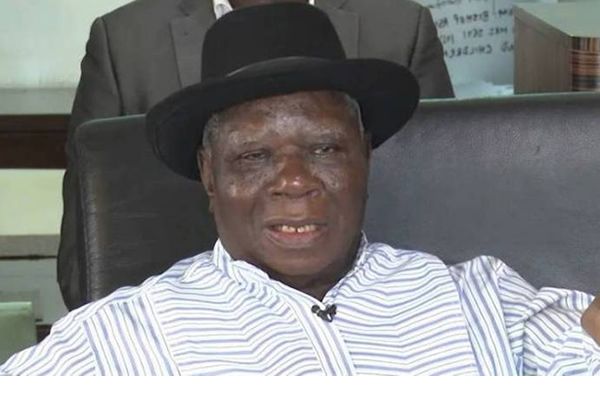Who would you say Baba is from your interactions with him?
He is a nationalist; he always fights for the downtrodden, and the oppressed, including those who feel marginalised in families, communities, government, and in the country. Whenever people come to him to complain about an act of injustice done to them, he takes the matter up. He will first of all ask the complainant some questions to understand the cause of the problem. If the person who brought the complaint is wrong he will tell him or her and then move to reconcile both parties.
Then on the aspect of where he comes from, being an Ijaw man, he fights for his people always. He takes up issues on the oppression of his people and region by other people, especially the aspect of resource control and the degradation of the environment by the oil companies.
He has been fighting the battle for the Niger Delta for many years. I was opportune to see some of the documents in his archive and I was impressed by the kind of issues he had been tackling even as far back as when he was in the government of General Yakubu Gowon; and during the Second Republic. He is a very fantastic man and I’m very proud of him. It is a privilege working with him.
Q) How would you describe his last days and moments?
He died in my arms. Apart from the doctors, I was the last person who saw him alive before he died at Diff Hospital here in Abuja. He lived a good life and in as much as we would have wanted him to remain with us, we cannot question God for taking him at this time. In as much as we would have wanted him to remain and fight the battles of the Niger Delta for us, we just have to accept the will of God because even we all will go back to God one day.
On Sunday, February 16,/2025, Baba was not feeling fine, so we took him to the hospital. Prof Godknows Igali, his brother, Prof C.C Clark, and his first son, Benawei Clark, and I took him to the hospital.
So, right there, the doctors did their best and he became a bit stable. On Monday night, the doctors checked his vitals and they said everything was OK. But suddenly, the situation changed and we can’t question God.
I remember that at a point he was behaving somehow and I had to raise his hand and I was saying: No Daddy, please don’t leave us. I was shaking him as the doctors tried to revive him. But at the end of the day, the doctors turned to me to console me . They said I should take it easy because it has happened.
Q) What do you think are his legacies?
The legacies he has left are uncountable. You know that he has been fighting so many battles, some of which I mentioned to you earlier. One of the legacies he has left behind is the fight against injustice, marginalisation, and oppression of the people of the Niger Delta. The very important one is the aspect of resource control. You know that some of the time I do read his speech on his behalf so I have been following the struggle.
The man is an institution. I’ve learnt so much in the course of my working with him. I don’t think there are issues in the struggle that I don’t know right now because I used to read some of the documents people bring to him. I just leave everything to God and I thank God for a life well spent.
Q) What was his last message?
To be honest with you, he didn’t say anything during those very last moments. But before he fell ill, he had advised us to live in peace and harmony and stay out of trouble. He said that he had forgiven everybody who had offended him and that he wanted all of us to also forgive one another. Some time ago, he also advised us that when he is no more, we should put aside our pride and try to live in peace and harmony.
When he was saying all these things, we used to laugh and say to him: Baba, don’t worry, you’re not going anywhere yet. But what the old man was saying shows that he knew that his time was gradually coming to an end. On our own, we have been praying to God to heal him and keep him for a longer period
Q,) His friend, Chief Ayo Adebanjo died a few days before he died. Could his illness have been out of the shock of the loss of a friend?
There is one funny thing that happened during this period. When his friend, Chief Adebanjo died, I saw it on Arise News very early in the morning while he was in the sitting room. Immediately, I lowered the volume of the TV because I didn’t want him to know what had happened to his friend. I knew that if he heard that news, there could be some trouble because by then his health condition had started deteriorating gradually. So within that period, we tried to manage the information to ensure he didn’t hear it. Even when we read the newspapers to him, we made sure we skipped the story of his friend’s death. We were praying that whenever he recovers fully, we may find a way to break the news to him.
We did the same when the President General of Ohaneze Ndigbo, Chief Emmanuel Iwuanyanwu also died. We managed it carefully to avoid trouble. So in the case of Adebanjo, we never had the opportunity of breaking that news to him before he passed on because we were not sure how such news might affect his health.















